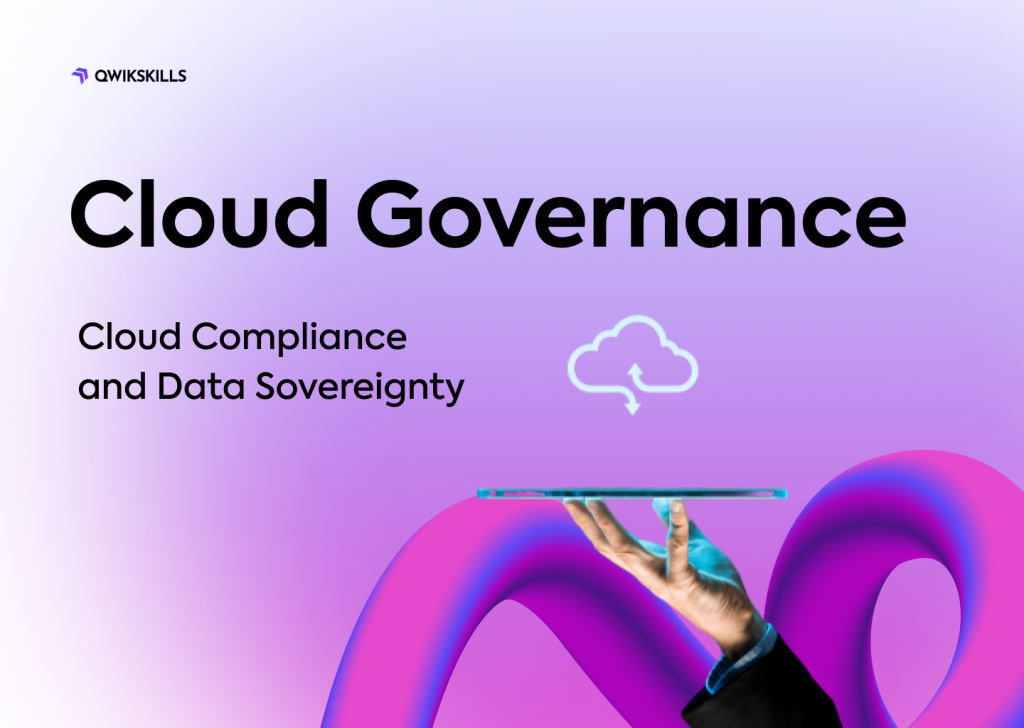1. What is Cloud Computing?
Cloud computing is a service that uses the internet as a medium of storing and delivering data. It allows users to save and access their data on the internet (cloud) and relieves them of using physical storage tools like hard disks etc. Also, this is a global service and is not limited by geographical restrictions.
2. What is Google Cloud Platform?
Google Cloud Platform or GCP is a cloud computing platform designed by Google. It is a combination of PaaS, IaaS, and serverless cloud computing levels. It offers a list of services to its users such as GCPComputing, networking, storage, big data, machine learning, management services, etc.
Also, all these services run on the same infrastructure that Google uses for its end-user products, such as Google Search, Gmail, file storage, and YouTube.
3. Name the different models for deployment in cloud computing.
- Private Cloud
- Public Cloud
- Hybrid Cloud
- Community Cloud
4. How to authenticate Google Compute Engine API?
You can authenticate Google Compute Engine API using –
- OAuth 2.0
- Client library, or
- Directly with an access token
5. What is Google Compute Engine?
Google Cloud Engine (GCE) is an Infrastructure as a Service (IaaS) platform and the basic component of the Google Cloud Platform. It allows the clients to run extensive workloads and provides them with flexible Windows and Linux-based virtual machines. These virtual machines are self-managed, hosted on the Google infrastructure, and run on local, durable storage options and KVM.
Google Cloud Engine also includes a REST-based API to integrate with other GCP technologies (Google Cloud Storage, Google App Engine, Google BigQuery, etc.). As a result, it boasts superior computational ability and can develop complex and sophisticated applications.
6. What are the benefits of Cloud Computing?
Here are some of the advantages of cloud computing –
- Reduced IT Cost
- Security
- Flexibility
- Mobility
- Better Insights
- More Collaboration Opportunities
- Quality Control
- Disaster Recovery
- Loss Prevention
- Automatic Software Updates
- Competitive Edge
- Sustainability
7. Name the various components of the Google Cloud Platform.
- Google Compute Engine
- Google Cloud Container Engine
- Google Cloud Storage
- Google Cloud App Engine
- Google Cloud Dataflow
- Google Cloud Machine Learning Engine
- Google BigQuery Service
- Google Cloud Job Discovery
- Google Cloud Endpoints
- Google Cloud Test Lab
8. Why should you opt for Google Cloud Hosting?
- Google Cloud Hosting comes with better pricing plans
- Advantages of live migration of the machines
- Improved performance and execution
- Regular updates for development and expansion
- Cloud hosting private network offers the highest efficiency and maximum time
- Effective control and security of the cloud platform
- Built-in backups to ensure data integrity and reliability
9. Name some Google Cloud Products.
- BigQuery – Data warehouse for business insights
- Cloud CDN – A content delivery network for images, audio, video, etc.
- Cloud Functions allows you to treat all Google and third-party cloud services as building blocks and offer server-less execution
- Cloud Run – A controlled environment for running containerized applications
- Cloud SDK – It offers command-line tools and other libraries for Google Cloud
- Cloud SQL – Relational database services for PostgreSQL, SQL Server, and MySQL
- Cloud Storage – Offers storage in various safe and secure formats
- Compute Engine – For offering virtual machines running on Google’s data centers
- Data Flow – It delivers streaming analytics for batch processing and streams
- Google Kubernetes Engine – A managed environment for running containerized applications
- Operations – Aimed for monitoring, logging, and other performance services
10. What are the Google Cloud storage services?
Google Cloud storage offers a lot of storage services that run on Google Cloud’s infrastructure:
- Cloud Storage (Object storage)
- Persistent disk
- Local SSD
- Cloud Storage (Archival storage)
- Filestore
- Data Transfer Services
- Transfer Appliance
- Cloud Storage for Firebase
- Google Workspace
11. List some benefits of using the Google cloud platform.
Here are some of the advantages you will experience after choosing Google Cloud Platform:
- It offers competitive pricing and is more fairly priced than others.
- Google Cloud servers allow you to access information from everywhere.
- GCP delivers faster performance and services than other cloud hosting services.
- You receive constant updates for servers and security.
- Google Cloud Platform networks are secured and encrypted using different security measures.
12. What is Google Cloud SDK?
Google Cloud SDK is a collection of several command-line tools that develop the Google cloud. It allows you access to the big query, cloud storage, computes Engine, and other services.
Google Cloud SDK also contains the client as well as API libraries and helps users with Virtual Machine instances, computer engine networks, storage, and firewalls, etc.
13. Name different types of Cloud Services.
- Software as a Service (SaaS)
- Data as a Service (DaaS)
- Platform as a Service (PaaS)
- Infrastructure as a Service (IaaS)
14. What is “EUCALYPTUS” in the context of cloud computing?
“EUCALYPTUS” stands for Elastic Utility Computing Architecture for Linking Your Programs To Useful Systems. It is an open-source cloud computing infrastructure used for deploying cloud clusters.
It is used to build public, private, and hybrid cloud platforms and harness your data center in your organization.
15. What are the Google Cloud APIs? How can you access them?
Google Cloud APIs are programmatic interfaces in Google Cloud Platform services. They allow users to quickly add power and efficiency to your Google Cloud-based applications and provide storage access to the image analysis based on machine learning.
16. What is GCP storage?
GCP storage is a highly durable, secure, and scalable cloud storage service offered by Google. It allows you to access your data from anywhere in the world at any time.
17. What is VPC in the Google cloud platform?
Virtual Private Cloud (VPC) is a virtual network for connecting VM instances of compute engine, GKE (Google Kubernetes Engine) clusters, and other resources in the Google Cloud Platform.
The purpose of VPC is to offer flexibility in controlling the workload’s connections, be it on a regional or global level. A single VPC can expand up to multiple regions without communicating across the public internet.
18. What are the different phases in the Cloud?
There are four different phases in the cloud –
- Cleanup phase
- Shutdown phase
- Launch Phase
- Monitor Phase
19. What is Google BigQuery? Explain its benefits.
Google BigQuery is a serverless, highly scalable, and cost-effective multi-cloud data store used for business agility. It acts as a store for all the analytical data in the organization and lets users organize data tables or data sets.
20. What is Google Cloud Messaging?
Google Cloud Messaging (Firebase) is a cross-platform notification service developed by Google. It allows users to send and receive messages for free.
Firebase is used to send messages or notify the customers to promote the re-engagement of users and target multi-purpose messages.
21. What is a Google Cloud Storage bucket?
Cloud Storage buckets are the basic containers that store data, and everything that we store on the cloud is contained in a bucket. Buckets allow the user to organize the data and also control access to it.
A bucket has a unique name globally and a certain geographic location to store the data. Plus, you can create an unlimited number of buckets and delete them when not required.
22. Explain the relationship between Google Compute Engine and Google App Engine.
Google Compute Engine and Google App Engine are two complementary services to each other. One main difference between the two is that Google Compute Engine is an IaaS product, whereas Google App Engine is a PaaS product of Google.
Google App Engine is used to run web-based applications, mobile backends, and having more control over your underlying infrastructure. On the other hand, Google Compute Engine lets you create and run virtual machines on Google’s infrastructure.
23. What is the difference between elasticity and scalability in cloud computing?
Scalability is a feature of cloud computing that is used to manage increased workload in proportion to the amount of resource capacity. Elasticity, on the other hand, highlights the concept of commissioning and decommissioning a large amount of resource capacity.
24. What are the basic clouds in cloud computing?
There are three basic clouds in cloud computing-
- Professional cloud
- Personal cloud
- Performance cloud
25. How will you view your transaction history in the Google Cloud Platform?
- Sign in to the Google Cloud Platform Console.
- Go to the Billing section in the menu.
- Select “Go” to a linked billing account in case you have more than one billing account. If you want to see bills for a different account, select Manage billing accounts.
- Go to the Transactions, and you can view the past three month’s transactions.
- By default, you will view the past 3 months’ transactions in the Transactions section, and you can change it by selecting a particular time range.



